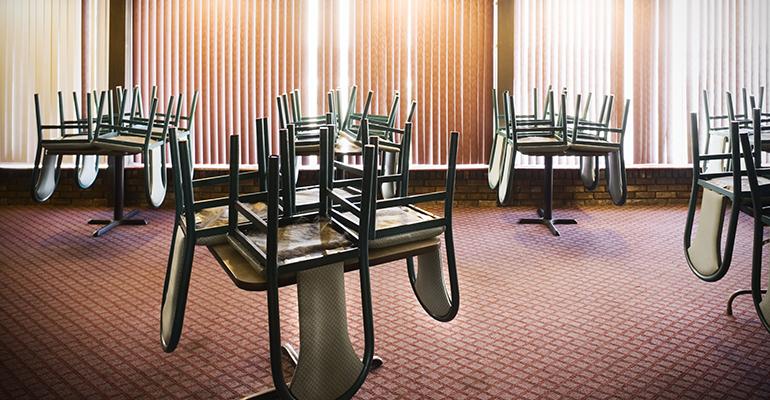As the coronavirus crisis worsens around the country and restaurants are either being forced to close due to local city and state ordinances, or are dealing with empty dining rooms, consumer confidence is waning. According to Datassential’s latest restaurant industry survey of consumer behaviors and emotions on March 14, 41% of Americans are nervous or worried to go out to eat, 27% are avoiding going out to restaurants altogether and under one-third of survey respondents reported “no concerns whatsoever” about dining out.
Although the numbers seem alarming, the majority of Americans surveyed are still comfortable with going out to eat for now: “A lot of people acknowledge that this is serious but they are trying to preserve a sense of normalcy as much as they can,” Mark Brandau, group manager from Datassential said. “We’re at a point where we’re going from ‘live to eat’ back to ‘eat to live,’ especially for people who have to shelter in place. But for a lot of people that will swing back again as people are missing their routines and craving normalcy.”
The survey also revealed that 71% of Americans are “very familiar” with coronavirus, and that baby boomers and families with children are the most likely demographics to avoid eating out in restaurants. The biggest concerns consumers have about visiting a restaurant? According to Datassential, 38% are worried about touching things others have touched, 28% are worried about being near other people and 15% are concerned about staff handling their food.
However, much like the restaurant traffic data being released daily from OpenTable, consumer sentiments are likely to change every day as the COVID-19 situation shifts. The Datassential survey was issued before most of the city and state ordinances to close restaurants/bars and/or shelter in place went into effect.
“We’re going to start seeing people really make decisions about whether or not they want to go outside at all,” Brandau said. “If they do, their choice of restaurant will be determined by totally different things. You have to consider what’s even open and how can you get it, do you have to change what you normally order, etc.”
Brandau predicts that as the weeks wear on, restaurants will have to adjust to a primarily delivery and takeout-centric business and change their menu to reflect easy-to-deliver items like pizza, burgers and wings, while avoiding (or learning to properly insulate) salads with dressing, French fries and any food that can get soggy. He also suggests clearly communicating with customers about their sanitation policies, their game plan and how they are taking care of their employees:
“It’s going to take a lot of creativity to stand out in a time like now,” Brandau said.
Contact Joanna Fantozzi at [email protected]
Follow her on Twitter: @joannafantozzi
For our most up-to-date coverage, visit the coronavirus homepage





